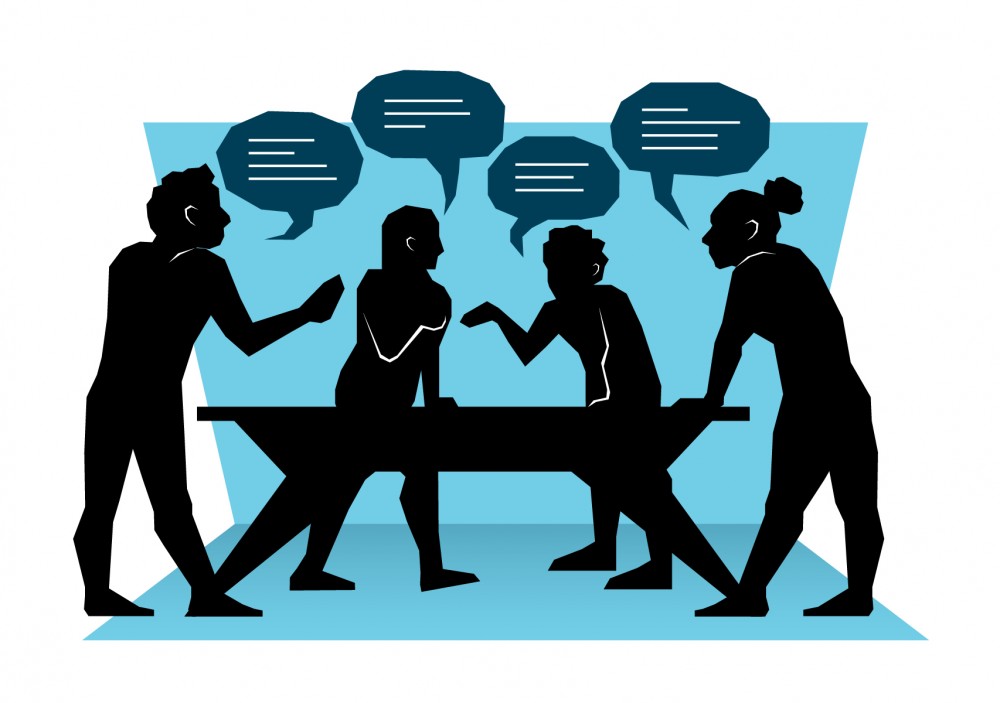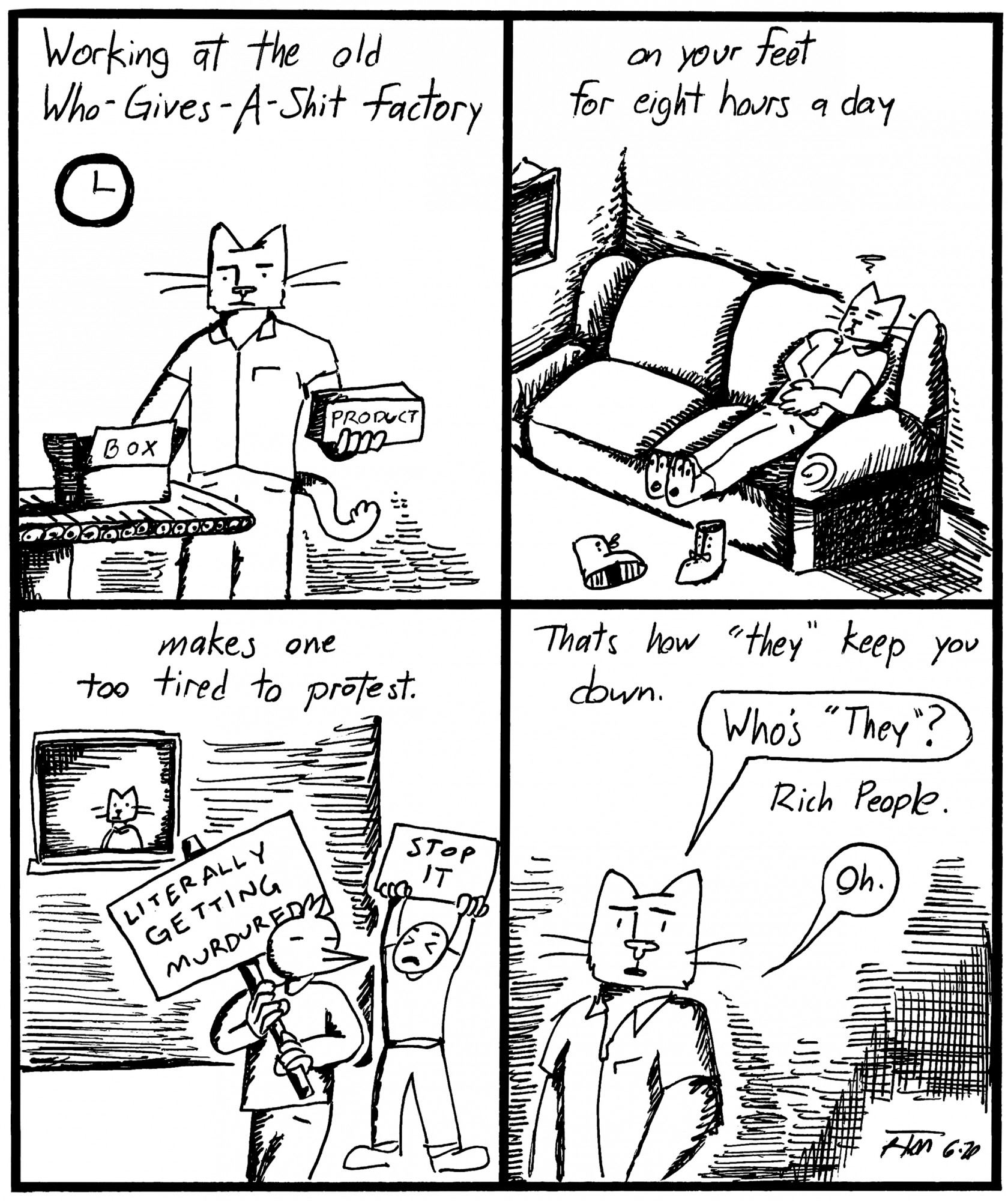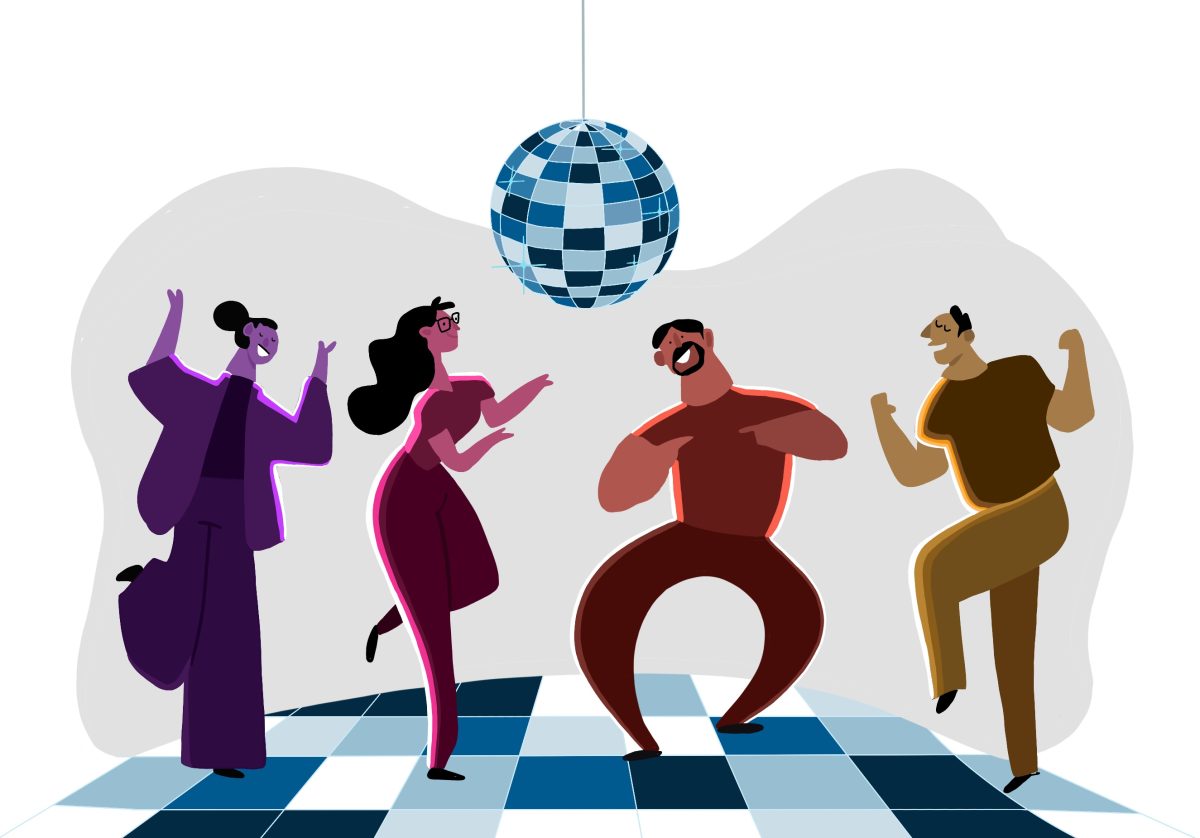The competitive nature of college begins, for many, in high school. Joining as many AP classes, clubs and sports teams as possible becomes the norm, as does the desire to impress those around you. This behavior only makes itself more evidence in college, as the stakes – a future career – are higher.
Maybe it’s not just for the clout; maybe people just enjoy being busy for the sake of consuming time. But that raises a question: is the proud feeling from admiration worth the anxiety from being constantly on-the-go? For some, maybe. For others, no.
The competitive culture in college hurts more than it helps. Many students juggle being a full-time student, having a part-time job, as well as extracurriculars. Many also balance multiple jobs or multiple clubs. This can be understandably anxiety-inducing.
A study of eight countries done by the World Health Organization revealed that nearly 30 percent of college students in the U.S. have felt general anxiety in the 12 months prior.
The obvious solution to heightened anxiety would be to take a break from the biggest stressors in your life, potentially classes if that’s what’s best for your mental health. But finding a job post-graduation without a stacked resume and previous experience feels close to impossible, and needing to out-perform peers for those jobs feels crucial.
This competitive nature presents itself in many ways. Friends compare the number of hours they slept the night before, how many coffees they’ve had that day, how late they get home and how much homework they still have to do. As more people attend college and more opportunities are provided, it seems as though the educational standard begins to rise, too. The pressure to go on to receive a Master’s, J.D., Ph.D., etc. has begun to rise, and it won’t be long until that has become the new standard.
COVID-19 has only complicated the matter more. Student groups aren’t meeting, campus has been shut down, and many are out of jobs or internships that they rely on not just for income but also experience. Soon, many will be graduating into an economy that is quickly declining, and our stress is higher than ever. Seniors could be graduating into a job market that sorely needs workers, or they could be taking jobs unworthy of their degree.
The future is more uncertain now than ever, and there is little relief that can be offered. No one is sure how the world will look in two weeks, or even two months time. The end does not appear to be in sight. A problem of this magnitude is not easily fixed. When this pandemic is all over, the solution to heightened anxiety might be to add more mental health professionals and counselors on campus. But, what about an ingrained ideology that fixes students against each other?
It’s the difference between being competent and being competitive. Instead of instilling a “win no matter what” mindset, maybe teachers, parents and colleges should think about how being “good enough” might just be good enough. That’s not to promote mediocrity, or alack of drive, but perhaps not always pushing to be the best will allow us to fully engage in what we’re learning and with the life around us.
The competitive nature of the job market might not ever change, but the way people respond to competitive remarks can. The next time a friend tells you that they only got four hours of sleep the night before show some real concern, rather than tell them that you only got three.
If they say they’re stressed because the five student groups they’re a part of all meet on the same day, ask if they’re really invested in what those groups are doing. Or, if they’re panicked about the fact that everything has been cancelled and are worried about what the future holds, listen to understand and empathize. Don’t listen to reply or patronize.
This is only a small, short-term solution. It is a systematic problem that needs a systematic solve. Until that answer is provided, encouraging self-care and discouraging harmful habits is the best we can do.



















